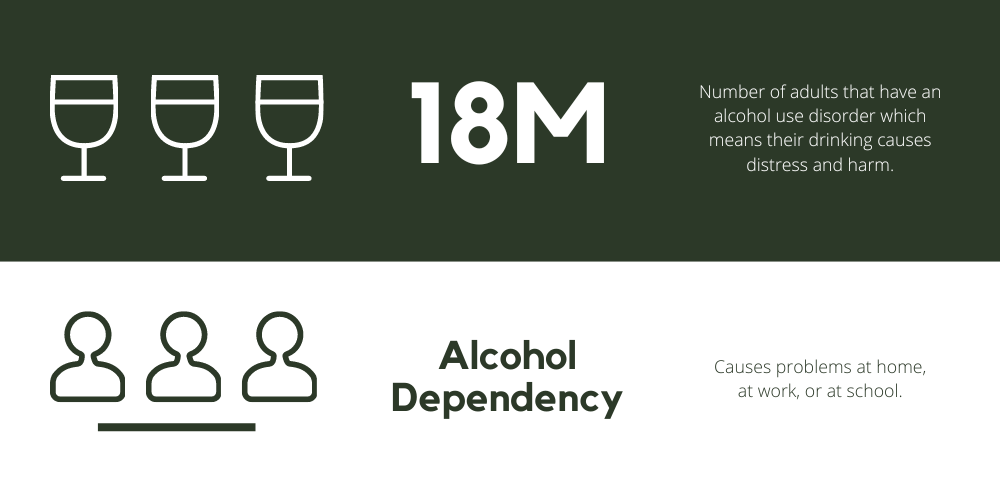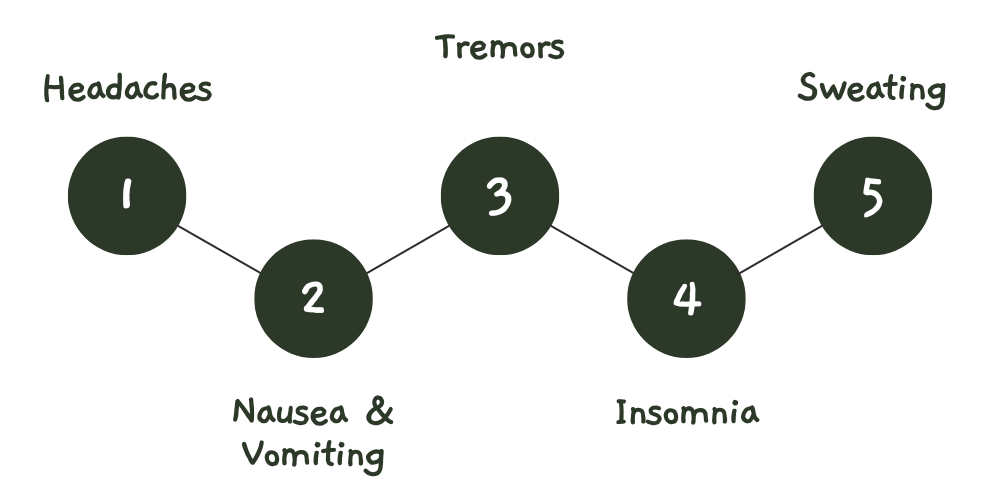
Medically Supervised Alcohol Detox In Mission Viejo
Alcohol detox is the process of safely managing withdrawal symptoms associated with stopping alcohol use. Alcohol, a widely used and socially accepted substance, is highly addictive. Its excessive consumption can lead to alcohol dependence, a serious medical condition characterized by the inability to control alcohol intake.
Abrupt cessation of alcohol use can lead to a range of uncomfortable and potentially dangerous withdrawal symptoms, including severe alcohol withdrawal symptoms. These symptoms occur as the body attempts to readjust to functioning without alcohol. Due to the severity of withdrawal, attempting alcohol detox without medical supervision is strongly discouraged.
At Sullivan Recovery, we offer medically supervised alcohol detox as the first crucial step in comprehensive alcohol addiction treatment. Our personalized detox programs provide a safe and supportive environment where individuals can navigate the challenges of withdrawal under the care of experienced professionals. Similar to the Substance Abuse and Mental Health Services Administration’s (SAMHSA) guidelines, our detox programs prioritize patient safety and comfort.
The decision to undergo alcohol detox is a courageous one, marking the beginning of a journey toward recovery. By seeking addiction treatment programs, individuals can increase their chances of successfully overcoming alcohol addiction and reclaiming their lives. Sullivan Recovery is committed to providing comprehensive and compassionate care throughout the detox process and beyond, guiding individuals toward a healthier, alcohol-free future.

Alcohol use can quickly lead to physiological dependence, meaning the body adapts to the drug’s presence and begins to rely on it to function normally. The brain’s chemistry changes, and the body becomes accustomed to the presence of alcohol. When alcohol use stops, the body reacts with a wide range of withdrawal symptoms as it tries to regain balance.
Alcohol withdrawal can be particularly challenging to manage on one’s own due to the intensity and potential severity of withdrawal symptoms. The discomfort and cravings can be overwhelming, often leading individuals to relapse in an attempt to alleviate their suffering. This is why medical detox is crucial.
Medical detox programs, such as the comprehensive programs offered at Sullivan Recovery, provide a safe and supportive environment to navigate the complexities of alcohol withdrawal.
Alcohol withdrawal syndrome is a set of symptoms that can occur when someone with alcohol dependence suddenly stops or significantly reduces their alcohol intake. It’s a serious condition that can range from mild symptoms like tremors and anxiety to severe, life-threatening complications like delirium tremens (DTs). The severity of withdrawal symptoms can vary greatly depending on the individual’s history of alcohol abuse, overall health, and other factors.
By utilizing medically assisted alcohol withdrawal with specific medications, such as benzodiazepines, we can mitigate cravings and alleviate the discomfort of withdrawal symptoms. These medications work by enhancing the effects of a neurotransmitter called GABA, which helps to calm the nervous system and reduce withdrawal symptoms.
Additionally, our dedicated medical staff closely monitors each patient’s physical health throughout the alcohol detox process. This comprehensive approach ensures that any potential complications, such as seizures or delirium tremens (DTs), are promptly identified and addressed, providing the highest level of safety and comfort for our patients.
By addressing both the physical and psychological aspects of the entire withdrawal process, we aim to minimize discomfort, reduce the risk of relapse, and set the stage for successful long-term recovery.
The alcohol detoxification process typically begins with an initial assessment by our medical staff. This evaluation helps determine the severity of alcohol addiction, identify any co-occurring substance use disorders or drug abuse, and assess the individual’s overall physical health. Based on the assessment, our team creates a personalized detox plan tailored to each patient’s unique needs and medical history. This plan may include:
Tapering: A gradual reduction of alcohol intake to minimize withdrawal symptoms.
Medication-Assisted Treatment (MAT): The use of medications like benzodiazepines to manage cravings and withdrawal symptoms.
Supportive Care: 24/7 medical monitoring, counseling, and therapy to address physical and emotional discomfort.
Nutritional Guidance: A healthy diet plan to support the body’s recovery process.
During alcohol detox, patients are closely monitored as they go through acute withdrawal. Our team keeps a close eye on vital signs, withdrawal symptoms, and any potential complications. Medications may be administered to ease withdrawal symptoms and prevent complications. These medications may include:
Benzodiazepines: Like diazepam or lorazepam, which enhance the effects of GABA in the brain, reducing anxiety, agitation, and the risk of seizures.
Other medications: To manage specific symptoms like nausea, vomiting, headaches, or tremors.
Throughout the detox process, patients receive ongoing support from our medical staff and therapists. This support can include:
Individual counseling: To address the psychological aspects of addiction and develop coping skills.
Group therapy: To connect with others who are going through similar experiences and build a supportive community.
Educational sessions: On alcohol abuse, its effects, and the importance of relapse prevention.
Dual diagnosis treatment: If a co-occurring mental health disorder is present, we provide integrated treatment to address both conditions simultaneously.
The duration and intensity of alcohol detox can vary significantly depending on several factors, including:
The length and severity of alcohol addiction: Individuals with a longer history of heavy alcohol use are likely to experience more severe withdrawal symptoms.
Individual differences in metabolism and overall health
Each person’s body reacts differently to detox. Some individuals may experience milder symptoms, while others may require more intensive medical support to manage severe symptoms.
Acute Withdrawal (6-48 hours after the last drink):
Onset: Early signs typically appear within 6-12 hours after the last drink.
Symptoms: The initial symptoms may resemble a hangover, including headache, nausea, tremors, and anxiety. In more severe cases, hallucinations or seizures may occur.
Intensity: Withdrawal symptoms can be extremely uncomfortable and potentially life-threatening.
Early Stabilization (Days 2-5):
Peak Symptoms: For most individuals, the worst of the withdrawal symptoms peak within the first few days and gradually start to subside.
Continued Symptoms: Anxiety, insomnia, and mood swings may persist.
Medical Support: Medical supervision is crucial during this stage to manage severe symptoms and prevent complications.
Ongoing Recovery (Weeks to Months):
Lingering Symptoms: While the acute withdrawal symptoms typically subside within a week, some individuals may experience lingering physical and psychological effects for several weeks or even months.
Post-Acute Withdrawal Syndrome (PAWS): PAWS is characterized by symptoms like sleep disturbances, mood swings, anxiety, and difficulty concentrating. It can make recovery challenging and increase the risk of relapse.
Continued Support: Aftercare programs, therapy, and support groups are essential during this phase to address PAWS symptoms, develop coping mechanisms, and maintain sobriety.
Alcohol withdrawal symptoms can vary in intensity and duration depending on the length and severity of alcohol use and the individual’s overall health. Some of the most common symptoms of alcohol withdrawal include:
Headache: This can range from a mild tension headache to a severe, throbbing pain.
Nausea and vomiting: These gastrointestinal symptoms can be severe and may lead to dehydration if not properly managed.
Tremors (shakes): Shaking, particularly in the hands, is a common symptom of alcohol withdrawal.
Anxiety and agitation: Feelings of restlessness, nervousness, and irritability are common during alcohol withdrawal.
Insomnia and difficulty sleeping: Alcohol withdrawal often disrupts normal sleep patterns, leading to difficulty falling asleep or staying asleep.
Sweating and rapid heartbeat: These symptoms are often accompanied by high blood pressure.
Other symptoms: Alcohol withdrawal can also cause hallucinations, seizures, delirium tremens (DTs), confusion, and sensitivity to light and sound. While most symptoms are typically not life-threatening, they can be extremely uncomfortable and may lead to complications without proper medical supervision. Delirium tremens (DTs), a severe form of alcohol withdrawal, can be fatal if not treated promptly.

At-home alcohol detox is extremely dangerous and strongly discouraged for several reasons:
Severe Withdrawal Symptoms: Alcohol withdrawal can cause intense physical and psychological symptoms, as mentioned above. These symptoms can be overwhelming and potentially life-threatening without medical supervision.
Risk of Relapse: The intense cravings and discomfort experienced during withdrawal significantly increase the risk of relapse. Medical professionals can provide medications and support to manage cravings and reduce the chance of relapse.
Medical Complications: Alcohol withdrawal can lead to dehydration, electrolyte imbalances, seizures, and delirium tremens (DTs). Without medical supervision, these conditions can worsen rapidly and become life-threatening.
Lack of Support: Detoxing alone can be isolating and emotionally challenging. Medical professionals and support groups can provide crucial emotional and psychological support during this difficult process.
When someone with alcohol dependence suddenly stops drinking, their body undergoes a period of adjustment known as withdrawal. This can be an uncomfortable and sometimes dangerous experience, characterized by a range of symptoms. Thankfully, medications play a critical role in managing these symptoms, making the detox process safer and more tolerable.
Benzodiazepines: Calming the Storm
Benzodiazepines (benzos), such as diazepam (Valium), lorazepam (Ativan), and chlordiazepoxide (Librium), are commonly used during medically supervised detox. These medications enhance the effects of GABA (gamma-aminobutyric acid), a neurotransmitter that acts like a “brake pedal” in the brain. By increasing GABA activity, benzos help to:
Reduce anxiety and agitation: Withdrawal often brings on intense feelings of anxiety and restlessness. Benzos help to calm these emotions, making the detox process less stressful.
Alleviate tremors and muscle spasms: Many people experience shaking and muscle tension during withdrawal. Benzos help to relax the muscles and reduce these uncomfortable sensations.
Prevent seizures: Seizures are a serious risk during alcohol withdrawal, particularly for those with a history of heavy drinking. Benzos are highly effective in preventing this potentially life-threatening complication.
Improve sleep: Insomnia is common during detox, making it difficult to rest and recover. Benzos can help to promote sleep, aiding in the healing process.
In addition to benzos, other medications may be used during alcohol detox to address specific symptoms or complications. These can include:
Anticonvulsants: If a person is at high risk of seizures or has experienced them in the past, anticonvulsants may be prescribed alongside benzos for added protection.
Antipsychotics: In severe cases of withdrawal with delirium or hallucinations, antipsychotics may be used to manage these symptoms.
Medications for nausea and vomiting: Withdrawal can cause stomach upset and nausea. Medications like ondansetron (Zofran) can help to relieve these symptoms.
The completion of an alcohol detox program is a significant accomplishment, but it’s only the first step in the recovery journey. Relapse is a common concern for individuals with alcohol addiction, and developing a relapse prevention plan is crucial for maintaining long-term sobriety.
Internal Triggers: Emotional distress, boredom, stress, and even seemingly positive emotions can trigger cravings and relapse.
External Triggers: Social events where alcohol is present, specific locations associated with past drinking, or even certain people can pose a risk.
The Importance of Self-Awareness: Understanding your personal triggers is crucial for developing effective coping mechanisms and avoiding high-risk situations. Developing a Relapse Prevention Plan: Personalized Strategies: Your plan should be tailored to your
Don’t let alcohol addiction control your life any longer. Take the first step towards recovery by choosing Sullivan Recovery for your alcohol detoxification journey. Our compassionate and experienced team is ready to support you every step of the way.
Contact us today to learn more about our alcohol detox program and how we can help you achieve a healthier, addiction-free life.
The duration of alcohol detox can vary from person to person. It typically lasts a few days to a week, depending on individual needs and the severity of addiction.
Yes, medical supervision is crucial during alcohol detox to ensure your safety and manage any potential withdrawal symptoms effectively.
During alcohol detox, you can expect a thorough assessment, medical monitoring, emotional support, and, if necessary, medication to ease withdrawal symptoms.
After completing alcohol detox, we help you transition to a suitable addiction treatment program to continue your journey towards recovery.
Getting started is easy. Simply contact us today, and our friendly staff will guide you through the initial steps of enrollment in our alcohol detox program.
We are available around the clock to assist you, every day of the year.
© 2024 Sullivan Recovery. All rights reserved.